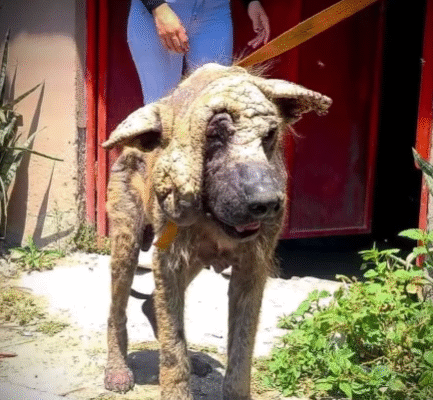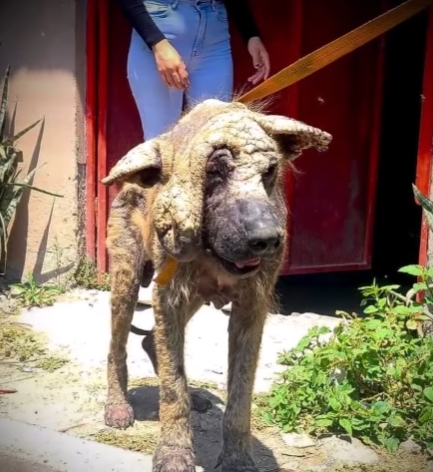
Deep in the misty valley of a quiet countryside stood a small, close-knit village named Elmridge. It was the kind of place where everyone knew everyone else — where gossip traveled faster than the wind and fear could spread like wildfire. At the edge of that village, surrounded by thick woods and the distant howls of unseen animals, there stood an old, crumbling cottage. And in that lonely cottage lived him — the one everyone called The Beast of the Village.
His real name was Elias Granger, but few dared to say it aloud. The children whispered stories about him under blankets at night — tales of how he once tore a wild boar apart with his bare hands, or how his eyes glowed red in the dark. The adults didn’t believe those tales, at least not completely, but they still crossed to the other side of the road whenever Elias came into town.
He was tall, broad-shouldered, and covered in scars that spoke of a violent past. His beard was long and untamed, his hair streaked with silver despite his relatively young age. When he spoke, his voice rumbled low like thunder before a storm. And yet, he rarely spoke at all. He bought supplies — bread, meat, sometimes medicine — and left without a word. No one ever saw him smile.
For years, he lived like that — an outcast among his own people. The village mothers warned their children not to go near his home. The men muttered about what crimes he might have committed in the past to deserve such solitude. And as time passed, “Elias Granger” was forgotten; only The Beast remained.
But then one bitter winter changed everything.
The snow came early that year, covering Elmridge in a thick white silence. The villagers were prepared for the cold, but not for the sickness that followed. A strange fever swept through the town — one that made children cough until they could no longer breathe. The village doctor, old and tired, could do little to help. Families were desperate.
And that was when someone noticed the light from the cottage at the edge of the woods.
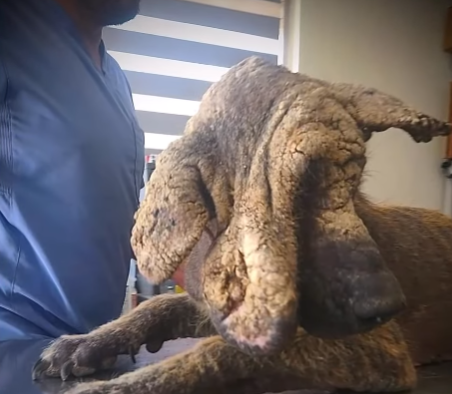
Every night, long after the rest of the village slept, smoke could be seen rising from Elias’s chimney. Some said he was performing strange rituals. Others said he was brewing potions. Fear and curiosity mixed together, and soon, a small group of villagers decided to confront him.
When they arrived, they didn’t find a monster.
They found Elias kneeling beside a small wooden table, mixing herbs and boiling water over the fire. His hands moved carefully, deliberately. The room smelled of rosemary and pine. Beside him lay an open book filled with medical drawings and handwritten notes.
“What are you doing?” one of the men demanded. “What kind of witchcraft is this?”
Elias didn’t even look up. “It’s not witchcraft,” he said quietly. “It’s medicine. For the fever.”
The villagers exchanged uneasy glances. None of them trusted him — but desperation can make even fear tremble.
One woman stepped forward, tears glistening in her eyes. “My daughter… she’s burning with fever. Will that help her?”
Elias finally looked up, his gray eyes tired but kind. “Maybe,” he said. “Bring her here. I’ll do what I can.”
That night, for the first time in years, the villagers entered his home. The small girl lay on a blanket near the fire as Elias crushed herbs and mixed them into a steaming bowl. He pressed a cloth soaked in the mixture to her forehead, whispering words too soft to hear. Hours passed. The girl’s breathing, once ragged, began to ease. By morning, her fever had broken.
The villagers were stunned.
Word spread quickly — the Beast can heal the sick. Soon, more families came, carrying their children, their loved ones. And Elias helped them all. He never asked for money. He never turned anyone away. Slowly, the fear began to fade.
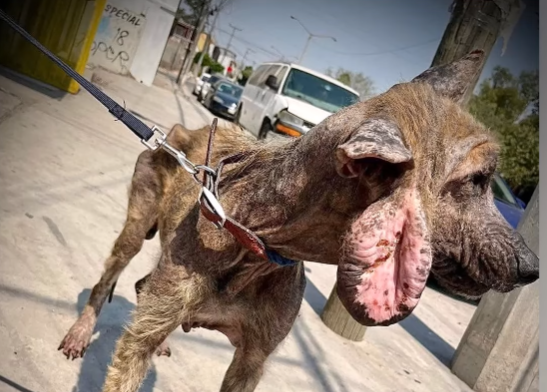
But the question still lingered: How did he know so much about medicine?
One day, a young boy — too curious for his own good — asked him directly, “Mister Elias, why do you live out here all alone? Didn’t you ever have a family?”
The room went silent. Elias didn’t answer right away. He looked at the fire, the flames reflecting in his eyes. Then, in a low, trembling voice, he began to tell his story.
Years ago, before the villagers ever called him a beast, Elias had been the town’s blacksmith. He was strong, cheerful, and deeply in love with a woman named Clara. Together they had a son — a small boy with bright blue eyes and a laugh that could melt the hardest heart. Elias worked long hours to build a good life for them.
But one winter, a fever much like the one that had struck the village now came for his family. His son fell ill first, then Clara. Elias ran to the doctor, begged him for help, but the doctor could only shake his head. “There’s nothing we can do,” he’d said. “It’s God’s will.”
Elias refused to accept that. He searched the woods for herbs, tried every remedy he could find. But he was too late. His wife and child both died within a week.
The grief broke him. For days, he stayed by their graves, unable to speak, unable to move. When he finally returned to the village, people whispered that he had lost his mind. Some even said he had cursed God. And when strange noises began to come from his cottage — the clinking of bottles, the grinding of stones — they said he had turned to dark magic.
No one asked what he was really doing.
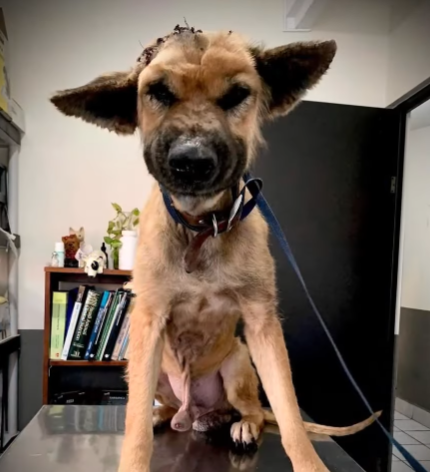
Elias had sworn that no one else would suffer as his family had. He began to study medicine in secret — old books, travelers’ journals, anything he could find. He taught himself how to mix herbs, how to make tonics. He tested everything on himself, enduring fevers and burns and sleepless nights. The scars on his body were from his failures, not from battles. He had become “The Beast” only because grief and love had made him different — too different for those who didn’t understand.
As Elias finished his story, tears shimmered in the villagers’ eyes. For the first time, they saw not a monster, but a man — broken, gentle, and brave.
From that day on, things began to change in Elmridge. Children no longer ran from him; they ran to him, bringing flowers or small gifts. The men who once avoided his gaze now nodded respectfully. The women brought him food and supplies, and the mayor himself offered to build him a new home closer to the village square.
Elias refused the offer, preferring the quiet of his cottage, but he did accept one thing — a wooden sign that hung outside his door. It read:
“Elias Granger — Healer of Elmridge.”
The name “Beast” disappeared like a shadow in sunlight.
Years later, long after the fever was gone and peace had returned, people still told stories about Elias. But now, those stories were different. They said he was the bravest man who ever lived, the one who turned pain into healing, who faced his grief and used it to save others.
And on winter nights, when the snow began to fall and smoke rose from his chimney, the villagers would smile and whisper,
“There’s no beast in that cottage — only a man with a heart too big for the world to understand.”
